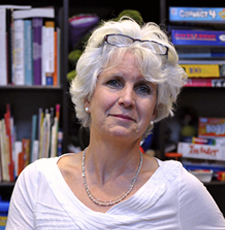Doctors’ Notes
BackParenthood as a Stage of Development
Lots and lots have been written about the complexities of child development; books, articles, blogs and face book columns have attempted to shed light on the developmental stages of childhood. These developmental stages are both predictable and hair-raisingly complicated.
But parenthood is also a developmental stage — one that deserves our understanding as well as the developmental stages of our children.
 While the differences between a childhood stage of development and a parental stage of development are obvious, some of the primary elements are the same. For children, each developmental stage has certain “tasks” embedded in them that children are striving to achieve. Newborns and infants are wired to develop to learn trust with a primary care giver and the world around them –I’m hungry and someone feeds me; I cry and someone comes to help me – teaching me trust and a sense of efficacy). Toddlers, with their new found upward mobility and cognitive skills, are striving for autonomy within the context of a supportive relationship (I can run away because you will chase me and keep me safe.).
While the differences between a childhood stage of development and a parental stage of development are obvious, some of the primary elements are the same. For children, each developmental stage has certain “tasks” embedded in them that children are striving to achieve. Newborns and infants are wired to develop to learn trust with a primary care giver and the world around them –I’m hungry and someone feeds me; I cry and someone comes to help me – teaching me trust and a sense of efficacy). Toddlers, with their new found upward mobility and cognitive skills, are striving for autonomy within the context of a supportive relationship (I can run away because you will chase me and keep me safe.).
For parents, the first “task” is the psychological transition of putting someone else’s needs before their own. No matter how much we’ve looked forward to being a parent, this is a significant shift in the way we look at the world – and one that has a huge ripple effect into all aspects of a parent’s life.
Attuning to and attaching with a child requires a level of empathy (imagining the “others’” experience and responding to it day in and day out) that most people have never experienced before being a parent. Until you become a parent, you can’t know the intensity of that commitment, or understand the complexity of developing a parenting style that meets that particular child’s needs. (And all the more so when you realize that no two children are completely alike, and that some children are just easier to parent than others).
Developing a parenting style emerges from many sources. Like all new jobs, we bring both our strengths and our vulnerabilities to the job of parenting. We bring ALL our past experiences (the ones we remember AND the ones we don’t remember, but experienced nonetheless!) along with a whole host of ideas about how we want to show love, teach discipline, express feelings, promote success in school, share traditions, etc… All of this “parenting” is done with a child or children that are constantly shifting from one developmental stage to another, with a huge range of temperaments, personalities, and genetic predispositions. It’s a dynamic process. It’s like rubbing your belly and patting your head, but with one hand cooking dinner and the other doing whatever it takes to pay your bills.
Parenting can be lonely, exciting, exhilarating, boring, and anxiety-producing. What our children need from us to become all that we want for them is often hard to predict, in part because it invariably changes from week to week (I’ll do it myself is followed by I can’t do it;why don’t you trust me comes after finding all the undone homework assignments at the bottom of the book-bag). Being a parent means totally immersing yourself in your child’s needs, and at the same time stepping back enough so that you don’t get entangled with your child’s necessary struggles with autonomy, control, emotional regulation, and eventual independence. It’s easy to lose your balance as children grow and regress and grow some more. It’s a complicated dance that requires support, insight, information, curiosity — and a lot patience with yourself.
Diana Schwab is our Kids Plus developmental consultant. She works with parents to help them sort out their developmental concerns, manage significant changes in their families, and find and use all the resources they need.